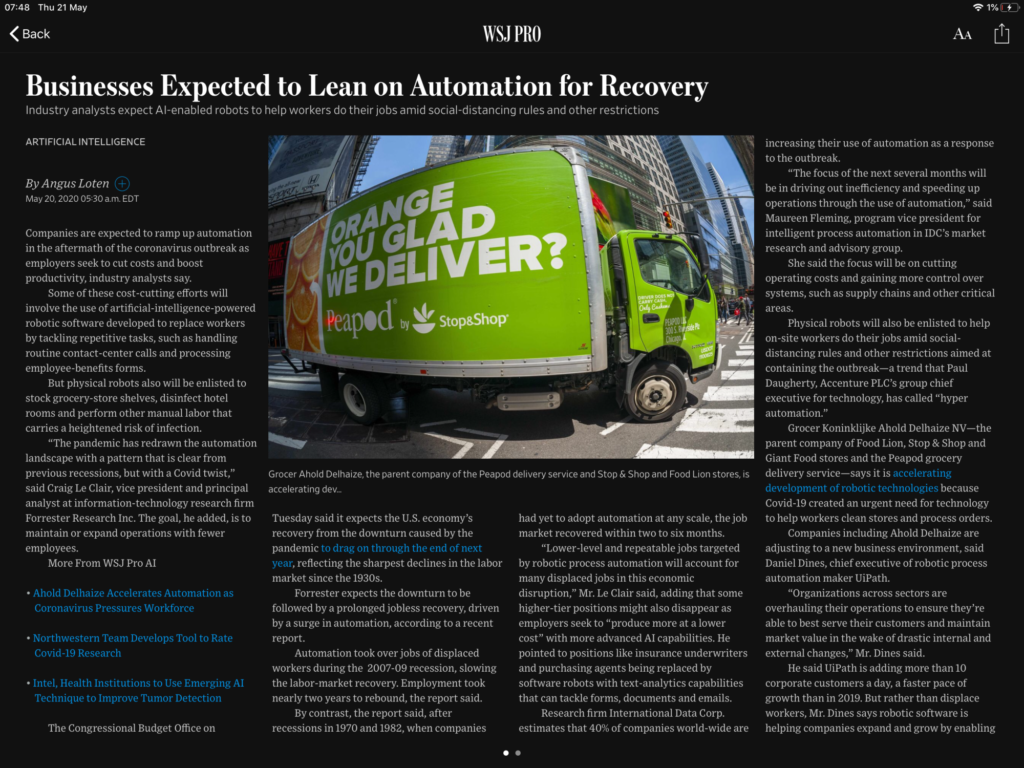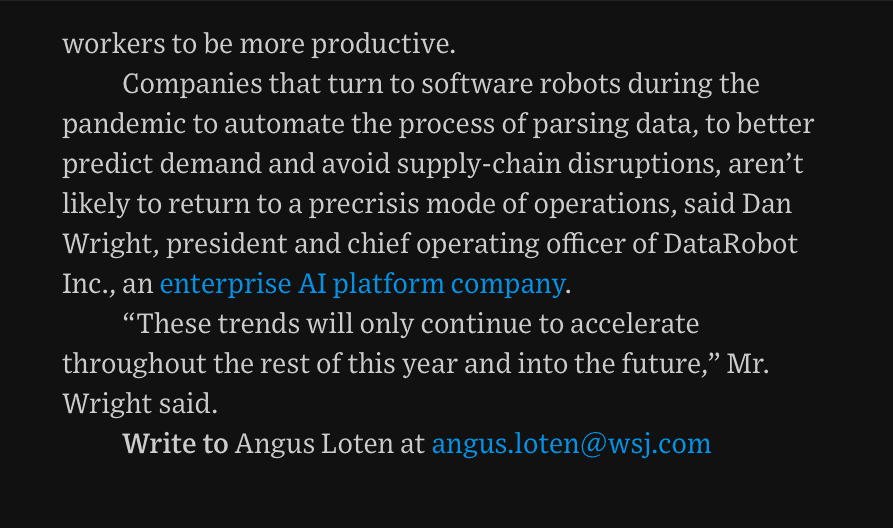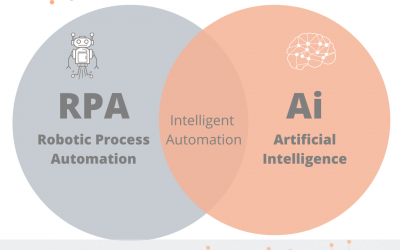We all know that Karl Marx is a controversial character and his ability to understand the basic foundations of economics is sometimes overrated, but we can revamp his worn-out slogan to talk about a real global economic issue.
I happened to read an interesting article from the Wall Street Journal (pics and link below) about the impact on employment of automation, both of the software type (RPA/AI) and industrial, and, once again, I had the feeling it is really time to act to establish the real proportions of these impacts on labor and the viable proper counteractions.
Without doubt companies will adopt automation, even more rapidly now since this coronavirus crisis is forcing businesses to go digital to operate and survive. Moreover, companies will face a likely worldwide recession and be forced to cut costs, and the equation “automation = less labor” will be a no-brainer decision, especially if there are no resources to retrain employees.
So, automation will happen and will be huge.
Nonetheless, I’m still an optimist and more in line with what Daniel Dines, the CEO of the RPA maker UiPath, says in the WSJ article when it comes to the actual extent of this problem and the possible counteraction to limit unemployment for automation, for three reasons:
1. Not all activities done by employees can be currently automated. Obviously, there are jobs that will be lost because all the tasks involved in these jobs can be highly or entirely automated, but the greatest majority of jobs will not be affected by automation (but surely, they will by the recessions to come). This because “tasks-as-robots” done by employees are just a part, often a small part, of the greatest majority of jobs. This is actually the daily experience we have with our customers at Vincix Group, where Intelligent Automation solutions improve the work, the productivity and the satisfaction of employees and the bottom line of companies;
2. The labor productivity gains obtainable through automation can be spectacular, and a more productive workforce is exactly what companies seek, especially at recession times (and, contrary to Marx’s ignorance, we know well that productivity is the only way to raise salaries in any developed economy);
3. There is a straightforward cure to considerably counterbalance automation-induced layoffs: education and training. To maintain the employability of workers and employees they have to learn new skills and acquire new competences. This, in my view, is both their duty as well as companies’ interest.
Said that I am not at all a supporter of financial aids from governments to companies and workers, but I believe that companies and workers should unite now to ask governments to highly reduce taxations, which is always a good thing contrary to Marx’s mistakes, on investments and labour, at least for the parts related to education and training.
Every time productive innovations have been made available to economic operators they have adopted them. This time won’t be different: possibly, the pace of adoption will be faster than we’ve ever seen.
Thus, the adoption of “the cure” must be at least as fast, and the only ones that can move fast are those directly impacted and interested: workers and companies.
Let’s unite! (but no fists required…)
Articolo scritto da Giovanni Sestili, Executive Chairman di Vincix Group







Commenti recenti